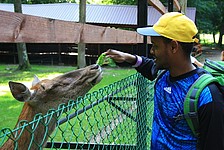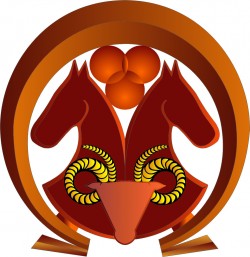Animal Conservation – from Field to Lab
 Animal Conservation – from Field to Lab
Animal Conservation – from Field to Lab
13 July – 23 July 2020, Warsaw University of Life Sciences, Poland
Venue
Warsaw and field stations in North-Eastern Poland
Background of Summer School / Introduction
In modern world the human influence on natural habitat is the main threat to wildlife. There is an urgent need of understanding how we can manage and preserve populations of wild animals in changing environment. The aim of summer school is to show how different techniques (both field and lab) can contribute to animal conservation.
We want summer school students to have the opportunity to visit current conservation and management projects in Poland, as well as national parks and other protected areas, to learn and obtain field skills. They also will have possibility to meet experts working in the field of biodiversity, both scientists and practitioners (from Poland and other countries). Data collected in the field will be elaborated in the laboratories of Institute of Animal Sciences.
Maximum number of participants
16
Pre-requisites
The school is aimed at students of animal and environmental sciences who have already completed at least 2 years of basic university coursework
Application
soon
Course Content
- biodiversity conservation at three levels (genetic resources, species, animals habitats)
- ecological genetics – the use of molecular methods to support wildlife conservation measures
- ex-situ and in-situ conservation
- active protection of wildlife (habitat restoration, reintroduction, introduction)
- alternative methods of livestock production as a tool in ecological engineering
- wild animals population management (protected species, game animals, endangered species, ecological engineering)
- species management plans (different groups of fauna)
- welfare of wild animals in captive breeding
- data collection in the field and elaboration in lab
Intended Learning Outcomes (ILO)
After completing the course, the participants should
- know wildlife conservation methods applied in the field and used in labs
- understand the different aspects of scientific knowledge used in animals
- conservation (biology, ecology, genetics, husbandry, etc.)
- be able to prepare or evaluate animals population management plans
- have experience in working independently and in international teams, involving parties from different countries, scientific background, approaches etc.
- be more aware of intercultural diversity and gender aspects in life sciences
Course Schedule
soon
Course Language
English
Course Format
The summer school will consist of classes, lectures, laboratory exercises, field studies, seminars. After 2 days of introduction in classroom we go for a 5 days trip to north-eastern part of Poland (Borecka Forest), to collect data of different group of animals (two main: amphibians and European bison). Then we come back to labs at SGGW in Warsaw to elaborate data and prepare final report.
Before starting the summer school we will organise on-line introduction and preparation to the course for all participants
Number of Credits [ECTS]
6
Type of Assessment
Final report
Cultural Activities / Social Program
Warsaw sightseeing tour
Warsaw ZOO
Welcome/farewell dinner for all participants
Night discussions by campfire during field trip
And many more…
Costs
400 euro (that will cover accommodation and food)
Accommodation
We provide 2-3 persons rooms in student house of SGGW
Health Insurance
Obligatory, paid by participant
Visa
According to country of nationality
Contact persons for scientific questions
Krzysztof Klimaszewski
Krzysztof_klimaszewski@sggw.pl
Contact person for administrative questions











